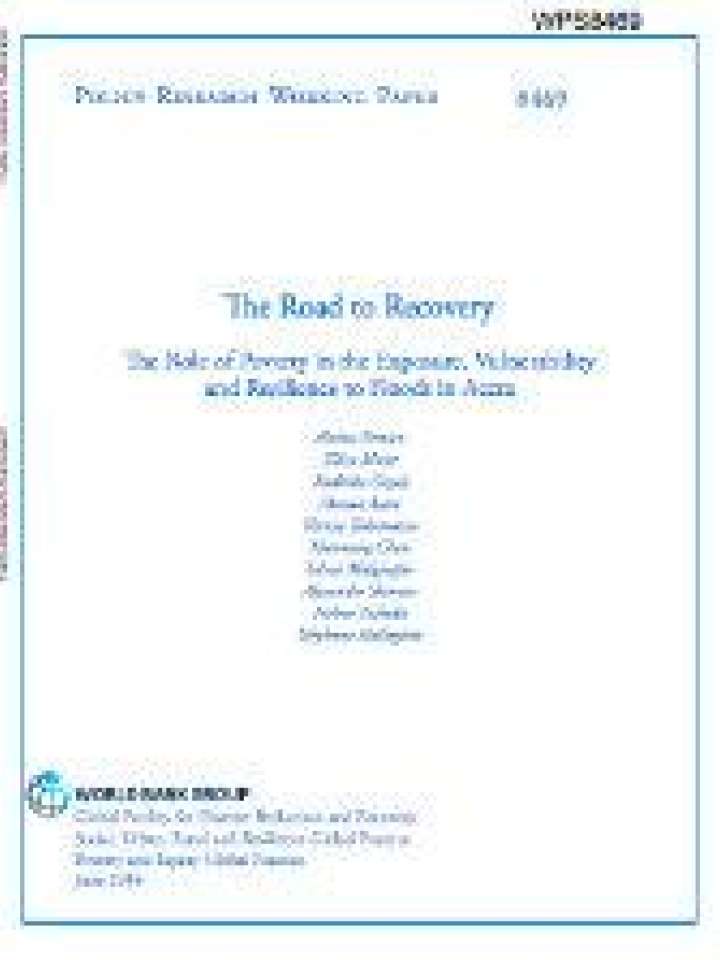The road to recovery: the role of poverty in the exposure, vulnerability and resilience to floods in Accra
In June 2015, about 53,000 people were affected by unusually severe floods in the Greater Accra Metropolitan Area, Ghana. The real impact of such a disaster is a product of exposure ("Who was affected?"), vulnerability ("How much did the affected households lose?"), and socioeconomic resilience ("What was their ability to cope and recover?").
This study explores these three dimensions to assess whether poor people were disproportionally affected by the 2015 floods. It reaches four main conclusions. (1) In the studied area, there is no difference in annual expenditures between the households who were affected and those who were not affected by the flood. (2) Poorer households lost less than their richer neighbors in absolute terms, but more when compared with their annual expenditure level, and poorer households are over-represented among the most severely affected households. (3) More than 30 percent of the affected households report not having recovered two years after the shock, and the ability of households to recover was driven by the magnitude of their losses, sources of income, and access to coping mechanisms, but not by their poverty, as measured by the annual expenditure level. (4) There is a measurable effect of the flood on behaviors, under-mining savings and investment in enterprises.
The study concludes with two policy implications. First, flood management could be considered as a component of the poverty-reduction strategy in the city. Second, building resilience is not only about increasing income. It also requires providing the population with coping and recovery mechanisms such as financial instruments. A flood management program needs to be designed to target low-resilience households, such as those with little access to coping and recovery mechanisms, even those who are not living in poverty before the shock.

